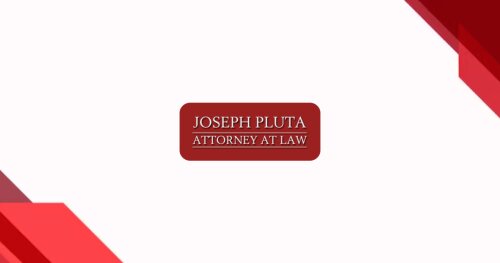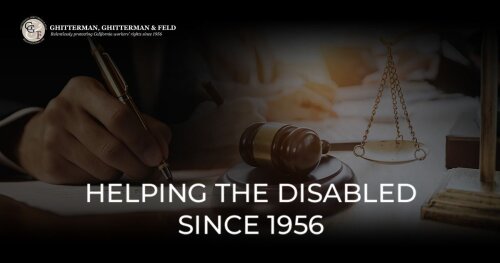Best Property Damage Lawyers in Vermont
Share your needs with us, get contacted by law firms.
Free. Takes 2 min.
Or refine your search by selecting a city:
List of the best lawyers in Vermont, United States
United States Property Damage Legal Questions answered by Lawyers
Browse our 1 legal question about Property Damage in United States and read the lawyer answers, or ask your own questions for free.
- MOVING COMPANY DAMAGED RENTAL HOME, FURNITURE AND NEW HOME
- MOVING COMPANY DAMAGED WALLS AND FURNITURE IN TWO HOUSES, THEY DIDNT USED PACKING BLANKETS OR MOVING EQUIPMENT, I FILED A DAMAGE CLAIM MID MOVE, AND RELIEVED THE WORKERS EARLY FROM SCHEDULED TIME TOOK PICS AND SUBMITTED TO THE MOVING COMPANY, NOW THE MOVING COMPANY IS INSINUATING WE CAUSED THE DAMAGE,... Read more →
-
Lawyer answer by T & A Legal
Hello, sorry about the damage to your walls and furniture. The moving company may be liable for a breach of contract or negligence. However, their liability will be determined largely by the contract between you and the moving company.Please note...
Read full answer
About Property Damage Law in Vermont, United States
Property damage law in Vermont covers the legal principles and statutes that address the destruction, harm, or loss of physical property. This can include damage caused intentionally, accidentally, or through negligence. Whether the property in question is real estate, a vehicle, or personal belongings, property owners in Vermont have legal avenues to seek repair, replacement, or financial compensation when harmed by a third party. Disputes may arise from accidents, vandalism, weather events, construction defects, or neighbor conflicts. Vermont's legal system aims to restore the injured party to the position they were in before the damage occurred, within the framework of state and local laws.
Why You May Need a Lawyer
Legal issues involving property damage can be complex, and a lawyer can be an invaluable resource in many situations. You may need a lawyer if:
- Someone has caused significant damage to your property and refuses to pay for repairs
- You are being held responsible for allegedly damaging someone else's property
- Your insurance claim for property damage has been denied or undervalued
- The property damage occurred due to unclear liability, such as a shared boundary or storm runoff
- You are facing a lawsuit related to property damage you are accused of causing
- You need help negotiating or understanding settlements or waivers from other parties or insurers
- There are conflicting reports or disputes about the origin or extent of the property damage
- The damage is intertwined with other legal issues, such as landlord-tenant disputes or construction contracts
Local Laws Overview
Vermont's laws on property damage can be found in both its statutes and case law. Key aspects include:
- Trespass and Vandalism: Intentionally damaging property may lead to both criminal and civil penalties under Vermont law.
- Negligence and Liability: Property owners and tenants can be found liable for accidental damage if it was due to negligence, meaning they did not take reasonable care.
- Insurance: Vermont law requires insurers to handle property damage claims in good faith. Disputes can arise about coverage, exclusions, and the amount owed after a loss.
- Statute of Limitations: There is a time limit for filing lawsuits related to property damage. In Vermont, property damage claims are generally subject to a three-year statute of limitations from the date the damage occurred.
- Small Claims Court: Minor property damage disputes (up to a certain dollar amount) may be handled in Vermont's small claims courts, which are designed for simpler and more affordable resolutions.
- Comparative Fault: If both parties share blame for the damage, Vermont uses a modified comparative fault system to determine how compensation is awarded.
Frequently Asked Questions
What should I do first if my property is damaged in Vermont?
Document the damage thoroughly with photos and written notes. Report the incident to your insurance company if you have coverage. If another party caused the damage, try to notify them in writing. Consider filing a police report for theft or vandalism.
Can I sue someone for damaging my property in Vermont?
Yes, you can pursue a civil lawsuit against another person or business if they are responsible for damage to your property, whether it was intentional or the result of negligence.
What if the person responsible refuses to pay for the damage?
If informal negotiations do not result in compensation, you may file a claim in small claims court or higher courts depending on the amount of damage and the complexity of the case.
Does my homeowner's or renter's insurance cover all types of property damage?
Not all damages are covered. Policies often exclude certain risks such as floods or wear and tear. Read your policy carefully or consult an attorney if your claim is denied or you are unsure about coverage.
What if my neighbor's tree falls and damages my property?
Liability can depend on whether the neighbor was negligent in maintaining the tree. If the tree was healthy and fell due to a storm, you may need to claim on your own insurance. If it was neglected, the neighbor may be responsible for damages.
How long do I have to file a lawsuit for property damage in Vermont?
Generally, you have three years from the date you discover the damage to file a lawsuit. It is important to consult a lawyer quickly to avoid missing deadlines.
What happens in court if both parties are partially at fault?
Vermont follows a modified comparative fault rule. Your compensation can be reduced based on your share of responsibility for the damage. If you are found to be 51 percent or more at fault, you may not recover compensation at all.
Are punitive damages available in Vermont property damage cases?
Punitive damages are rare and typically awarded only in cases of intentional, malicious, or reckless conduct. Most property damage claims involve compensatory damages only.
Do I need a lawyer to go to small claims court for property damage?
You are not required to have a lawyer in small claims court, but consulting one beforehand can help you prepare your case and understand your rights and responsibilities.
Can property damage be a criminal matter in Vermont?
Yes, vandalism, arson, and other types of intentional or reckless property damage may result in criminal charges. Victims may also pursue restitution through the criminal court.
Additional Resources
- Vermont Judiciary - Offers information on small claims court and civil lawsuits
- Vermont Department of Financial Regulation - Handles insurance complaints and information
- Vermont Bar Association - Provides lawyer referral services
- Local police departments - For assistance with crimes involving property damage
- Legal clinics or nonprofit organizations - For low-cost or free legal advice
- Local town or city offices - For zoning and building code issues that may relate to property damage
Next Steps
If you are dealing with property damage and need legal assistance, consider the following steps:
- Assess and document the damage clearly, keeping all records, receipts, and correspondence
- Reach out to your insurance company or the responsible party to try and resolve the matter directly
- If your case is not resolved to your satisfaction, consult with a property damage lawyer in Vermont for advice on your legal options
- Consider whether small claims court is an option for your situation if the amount is within the court's limits
- Make note of all deadlines for filing claims or lawsuits to protect your rights
- Prepare any documents, evidence, or witness statements that may support your claim or defense
A knowledgeable attorney can help you understand your rights, evaluate your case, and guide you through the legal process for the best possible outcome.
Lawzana helps you find the best lawyers and law firms in Vermont through a curated and pre-screened list of qualified legal professionals. Our platform offers rankings and detailed profiles of attorneys and law firms, allowing you to compare based on practice areas, including Property Damage, experience, and client feedback.
Each profile includes a description of the firm's areas of practice, client reviews, team members and partners, year of establishment, spoken languages, office locations, contact information, social media presence, and any published articles or resources. Most firms on our platform speak English and are experienced in both local and international legal matters.
Get a quote from top-rated law firms in Vermont, United States — quickly, securely, and without unnecessary hassle.
Disclaimer:
The information provided on this page is for general informational purposes only and does not constitute legal advice. While we strive to ensure the accuracy and relevance of the content, legal information may change over time, and interpretations of the law can vary. You should always consult with a qualified legal professional for advice specific to your situation.
We disclaim all liability for actions taken or not taken based on the content of this page. If you believe any information is incorrect or outdated, please contact us, and we will review and update it where appropriate.
Browse property damage law firms by city in Vermont
Refine your search by selecting a city.










